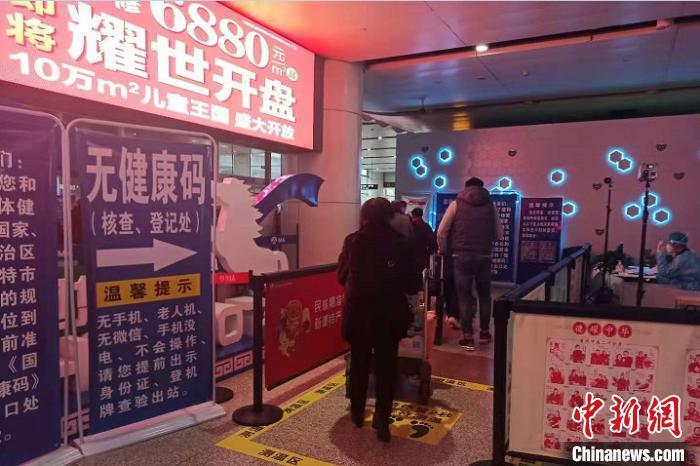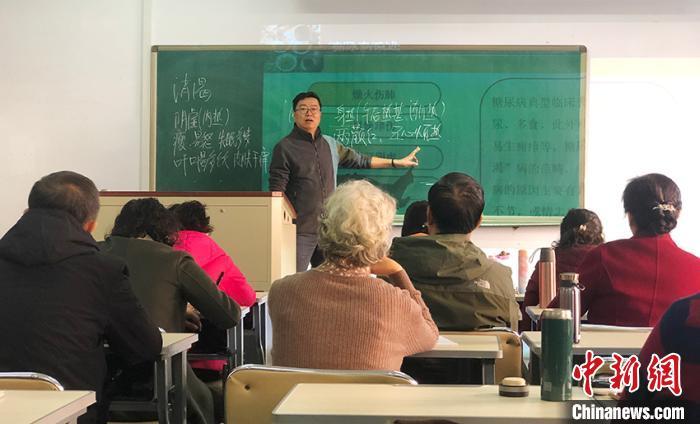"I am too old to be competent for front-line work", can it be used as a reason for not renewing my employment?
Cctv news(Reporter/Du Anqi): Recently, a public hospital stipulated that "men are over 55 years old and women are over 44 years old" will not be renewed. The joint investigation team of Xunyang City, Shaanxi Province reported that the hospital did not conclude an open-ended labor contract according to law and illegally terminated the labor contract.
At present, through consultation between the two parties, the hospital has paid 19 dismissed employees twice the economic compensation standard. However, dismissing old employees on the grounds that they are "too old to be competent for front-line work" has once again increased the age anxiety of workers. Many people worry that, in addition to the "35-year-old threshold" and "40-year-old threshold" in the workplace, is there another "44-year-old invisible threshold"?
Can age be used as a reason for not renewing employees? How do Chinese laws identify "age discrimination" in employment?
Professor Range, vice president of capital university of economics and business Institute of Labor Economics, said that it is not allowed by law to equate age with incompetence. "Labor Law" and "Employment Promotion Law" have clear provisions on "employment discrimination". However, there is still a certain ambiguity in the practice of legal norms and judicial decisions on the issue of "age discrimination" involved in this case. In the future, it is necessary to further improve the relevant legislation and set relevant rules for "age discrimination" in employment.
"News+"reporter: "I am too old to be competent for front-line work", can it be used as a reason for not renewing employees?
Scope:It is not allowed by law to equate age with incompetence. In the "Labor Contract Law", there is a clear stipulation about "incompetence", and it is necessary to confirm whether employees can meet the standards through assessment. Those who are not qualified for the job after examination should be re-examined after adjusting their posts or retraining, and those who are still unqualified can be dismissed according to the procedures prescribed by law. In practice, it’s not that employers can’t fire employees, but it should be based on job performance, not just age.
Age leads to the dissolution or termination of the labor contract, and there is only one situation, that is, reaching retirement age. The "Regulations on the Implementation of the Labor Contract Law" stipulates that the employer may terminate the labor contract when the employee reaches the statutory retirement age. At present, the legal retirement age is 60 for men, 55 for women cadres and 50 for women workers. With the extension of life expectancy, the retirement age of many female workers has been extended to 55 years in practice, and even some cadres can reach 60 years old.
In fact, the situation involved in this case has not increased in practice, but decreased. Because compared with 1990 and 2000, the whole society has changed in the cognitive level, and the acceptance and tolerance for middle-aged and elderly employees are higher. In addition, after the upgrading of industrial structure, knowledge-intensive and experience-intensive industries and posts have increased, and the requirements for physical conditions have been relatively reduced.
"News+"reporter: Why are some employers unwilling to continue hiring employees who are over the "age threshold"?
Scope:There are some "stereotypes" about middle-aged employees in the workplace, thinking that middle-aged employees will ignore the rules of the workplace because of their age and do not abide by the relevant norms of labor management of employers. In addition, middle-aged employees need to allocate more energy in family and other aspects, and their concentration on work is not as good as that of young people. But these are only subjective feelings. In fact, middle-aged employees should be treated in two ways.
On the one hand, middle-aged employees may be very close to the "ceiling" of their careers, and their training space is limited. But on the other hand, they also have advantages over young employees. Due to their past work experience and accumulated experience, their familiarity with work and workplace, the accumulation of knowledge, and their loyalty to work may be relatively high.
In addition, there are some studies in economics to demonstrate the legitimacy of age discrimination in employment. For example, from the point of view of efficiency or cost, the salary paid to young employees is usually lower than the value they generate, but for old employees, the salary paid is constantly improving because of the growth of seniority, and the salary paid may exceed the value generated. Therefore, enterprises may think that the labor cost burden of hiring elderly employees is heavier. Of course, this is only an economic explanation.
In fact, the value that middle-aged and elderly employees can generate depends on specific industries and positions, as well as the positioning of enterprises themselves. For example, some senior positions require employees to have more management experience and comprehensive ability, and middle-aged or middle-aged employees may be more competent. There will also be differences between different industries. Some industries have complex customer relationships and need experienced employees to do communication and communication, not young employees.
Employers should consider how to hire employees for a long time. Because bringing employees to the market, it may take higher cost and longer time to recruit the needed employees again. It is better to invest some money in training and make technical reserves in advance, so that the old employees can continue to stay and serve the company when the company transforms in the future.
"News+"reporter: Is there a concept of "age discrimination" in employment in law?
Scope:There are indeed many invisible "career thresholds" in practice, but some of them are set according to the production and operation needs of enterprises, and some of them are indeed in violation of the law and constitute discrimination.
Both the Labor Law and the Employment Promotion Law have clear provisions on "employment discrimination". In particular, the Employment Promotion Law lists four types of employment discrimination, including ethnic group, race, religious belief and gender. Through the development of judicial practice, the "hidden threshold" of employment and the fields where employment discrimination may exist have been expanded. In addition to the four types of discrimination explicitly listed in the law, geographical discrimination and health discrimination are also included in the scope of protection against employment discrimination. In these cases, workers can safeguard their rights according to law.
However, whether the "age discrimination" involved in this case constitutes employment discrimination is still ambiguous in the practice of legal norms and judicial decisions. China’s laws do not explicitly stipulate "age discrimination", but only stipulate the minimum age for employment, without explicitly prohibiting the upper limit of recruitment age, and are also cautious about arbitration or litigation requests made by workers on the grounds of "age discrimination". Because there are many factors that need to be balanced and considered, including the balance between the actual employment needs of enterprises and the protection of the rights and interests of workers of different ages, and the conflict of employment opportunities between middle-aged and elderly workers and new generation workers.
At present, in China’s employment practice, it may be a very common phenomenon that 35 years old is used as a recruitment condition or 44 years old as a condition for terminating the labor contract. However, in judicial practice, the cases of defending rights on the grounds that employers set an "age threshold" are very rare, and more are defined according to the relevant rules on the renewal and dissolution of contracts in the Labor Contract Law.
Personally, I think it is necessary to further improve the relevant legislation of age discrimination in employment in the future, extensively absorb and learn from overseas experience, and consider the changes in China’s labor market and population structure to set the relevant rules of age discrimination. At the same time, all parties need to work together to improve the public employment services and maintain the relative stability of the labor market, for example, consider how to make employees who are easily replaced acquire new vocational skills, adapt to the requirements of new technologies, and obtain new employment opportunities through training.






















 Natural gas to oil process
Natural gas to oil process










